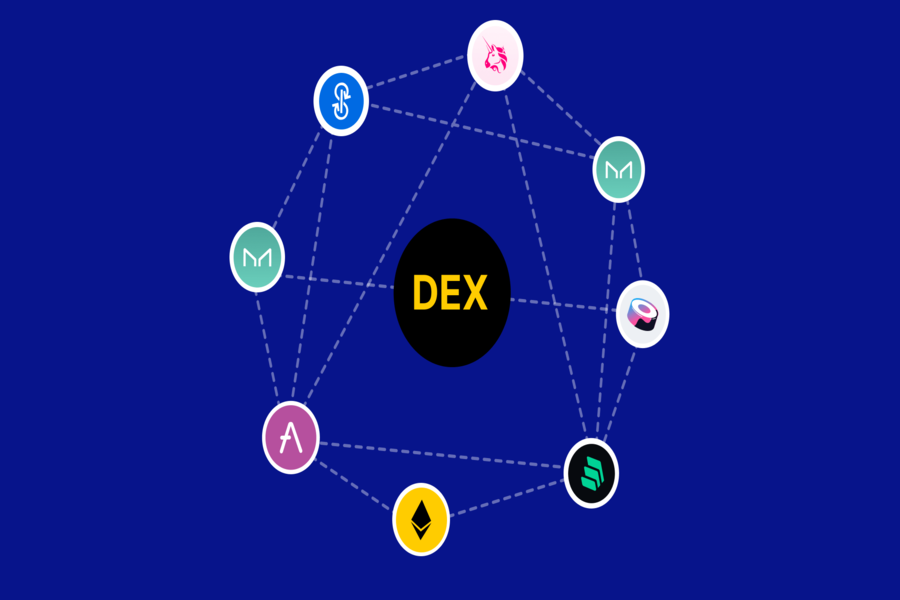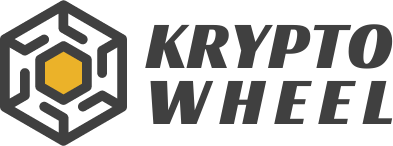
Governance Models in Decentralized Exchanges: Decisions and Consensus Mechanisms
- Antwan Koss
- June 15, 2023
- Blockchain, Defi
- blockchain, Decentralized, defi, Governance
- 0 Comments
In recent years, decentralized exchanges (DEXs) have gained significant popularity in the world of cryptocurrencies. These platforms allow users to trade digital assets directly with each other, eliminating the need for intermediaries. However, as the decentralized nature of these exchanges suggests, decisions regarding platform upgrades, protocol changes, and overall governance require careful consideration. This article explores the various governance models employed by decentralized exchanges, along with their associated consensus mechanisms.
Introduction
Decentralized exchanges operate on blockchain technology, allowing users to maintain control over their assets while engaging in peer-to-peer trading. Unlike traditional exchanges, which are often centralized and controlled by a single entity, DEXs aim to distribute decision-making power among their stakeholders. This decentralized governance structure ensures that no single party has excessive control over the platform.
Centralized Governance Model
In the centralized governance model, decisions regarding the DEX’s operations, upgrades, and policies are made by a central authority or a small group of individuals. While this approach may provide faster decision-making and implementation, it goes against the fundamental principles of decentralization and can lead to concerns around transparency and accountability.
Decentralized Governance Model
The decentralized governance model aims to involve all stakeholders in the decision-making process. It typically incorporates voting mechanisms that allow token holders to participate in important governance decisions. This approach promotes transparency, inclusivity, and community involvement. However, reaching consensus among a large and diverse group of participants can be challenging and time-consuming.
Hybrid Governance Model
The hybrid governance model combines elements of both centralized and decentralized approaches. It seeks to strike a balance between efficiency and inclusivity by delegating certain decisions to a central authority while involving the community in others. This model allows for quicker decision-making in urgent situations while ensuring broader participation in matters that require extensive community input.
Token Voting Consensus Mechanism
Token voting is a popular consensus mechanism in decentralized exchanges. In this model, voting power is proportional to the number of tokens held by participants. Token holders can vote on proposals, protocol upgrades, and other governance-related matters. While token voting promotes democratic decision-making, it can lead to a concentration of power in the hands of large token holders.
Stake-based Consensus Mechanism
Stake-based consensus mechanisms tie decision-making power to the number of tokens staked by participants. This approach incentivizes long-term commitment and aligns the interests of stakeholders with the overall success of the DEX. However, stake-based models may also suffer from issues such as plutocracy, where the wealthy hold excessive influence.
Futarchy Consensus Mechanism
Futarchy is an innovative consensus mechanism that combines prediction markets with governance decisions. In this model, participants predict the outcome of proposed changes through the use of prediction markets. Decisions are then made based on the market’s prediction of the overall impact. Futarchy leverages the wisdom of the crowd and encourages participants to make informed decisions based on their predictions.
Liquid Democracy Consensus Mechanism
Liquid democracy, also known as delegative democracy, is a consensus mechanism that allows token holders to either vote directly or delegate their voting power to trusted individuals. This model combines the advantages of both direct and representative democracy, enabling participants to make informed decisions while also benefiting from the expertise of trusted delegates. However, the complexity of managing delegations and ensuring accountability can pose challenges.
Decisions and Governance in Practice

In practice, decentralized exchanges often employ a combination of governance models and consensus mechanisms to address specific needs and challenges. For example, some platforms may use a decentralized governance model with token voting for protocol upgrades, while relying on a centralized approach for emergency decisions. This flexibility allows DEXs to adapt to changing circumstances while maintaining a fair and inclusive governance structure.
Challenges and Limitations
Governance in decentralized exchanges is not without its challenges and limitations. Ensuring widespread participation, mitigating the influence of large token holders, and maintaining the security and integrity of decision-making processes are ongoing concerns. Additionally, striking a balance between efficiency and inclusivity can be a delicate task, requiring careful design and implementation.
Upgradability and Governance in Decentralized Exchanges
Decentralized exchanges often require frequent upgrades to address security vulnerabilities, introduce new features, and adapt to changing market dynamics. Effective governance models should incorporate mechanisms for proposing and implementing upgrades. This can involve a voting process where participants have the opportunity to voice their opinions on proposed changes. By establishing clear guidelines for upgrades and involving the community in decision-making, DEXs can ensure a smooth and transparent upgrade process.
Ensuring Fair Token Distribution in Governance
Fair token distribution is crucial in decentralized exchange governance. It ensures that decision-making power is distributed equitably among participants. DEXs may adopt mechanisms such as a fair token distribution model or airdrops to ensure a wide and diverse token holder base. By avoiding excessive token concentration in the hands of a few, DEXs can promote a more democratic and inclusive governance structure.
The Importance of Transparency in Governance:
- Transparency ensures open and accessible decision-making processes.
- It fosters trust, accountability, and confidence among users.
- Clear visibility into decision-making creates an inclusive and collaborative environment.
The Role of Community Engagement in Governance:
- Active user participation leads to a sense of ownership and support.
- Open discussions, feedback, and voting involvement foster community engagement.
- Valuing community input enables informed decisions aligned with user preferences.
Balancing Speed and Security in Decision-Making:
- Decentralized exchanges face the challenge of timely decisions and platform security.
- Efficient decision-making mechanisms must coexist with rigorous security protocols.
- Striking the right balance protects user funds and maintains exchange stability.
The Role of Reputation Systems in Governance:
- Reputation systems assign scores based on user actions and contributions.
- Reputation influences voting power and decision-making authority.
- Integration of reputation systems promotes responsible behavior and a trustworthy environment.
Decentralized Governance and Autonomy
Decentralized governance in exchanges empowers users by providing autonomy and decision-making power. Unlike traditional centralized models, where a single entity controls the platform, decentralized exchanges distribute governance authority among participants. This autonomy ensures that no single party can manipulate or monopolize decision-making processes. By embracing decentralized governance, exchanges create a democratic and inclusive environment where users have a say in shaping the platform’s future.
Addressing Sybil Attacks in Governance
Sybil attacks pose a challenge in decentralized exchange governance. These attacks involve individuals creating multiple fake identities to gain undue influence over decision-making. To mitigate sybil attacks, exchanges implement various measures such as reputation systems, proof-of-stake mechanisms, or identity verification protocols. By establishing robust security measures, exchanges can maintain the integrity of their governance processes and ensure fair participation.
The Role of Off-Chain Governance
Off-chain governance refers to decision-making processes that occur outside the blockchain. While decentralized exchanges are built on the principles of blockchain technology, certain governance decisions may be more efficiently handled off-chain. Off-chain governance mechanisms include forums, social media platforms, and community meetings. Leveraging off-chain channels can facilitate faster consensus-building and broader participation, complementing the on-chain governance structures of decentralized exchanges.
Legal and Regulatory Considerations in Governance
Decentralized exchanges operate in a rapidly evolving regulatory landscape. Navigating legal frameworks is crucial to ensure compliance and protect the interests of both the platform and its users. Exchanges must consider factors such as data privacy, anti-money laundering (AML) regulations, and Know Your Customer (KYC) requirements. By incorporating legal and regulatory considerations into their governance models, exchanges can maintain a secure and trusted trading environment.
Interoperability and Governance Across Multiple Chains
With the rise of multi-chain ecosystems, decentralized exchanges face the challenge of interoperability and governance across different blockchains. Cross-chain governance models enable seamless communication and decision-making between disparate blockchain networks. By establishing interoperability protocols and cross-chain governance frameworks, exchanges can expand their reach, increase liquidity, and provide users with access to a wider range of assets and trading opportunities.
The Evolution of Governance Models in Decentralized Exchanges
Governance models in decentralized exchanges are still evolving as the industry matures. New ideas and concepts continue to emerge, challenging existing models and pushing the boundaries of decentralized decision-making. DEXs must stay adaptive and receptive to innovation in governance to effectively address emerging challenges and meet the evolving needs of their user base. The continuous evolution of governance models will contribute to the long-term sustainability and success of decentralized exchanges.
Remember to bold the headings using Markdown language and incorporate these subtopics and their corresponding content into the article structure.
Conclusion
Governance models in decentralized exchanges play a crucial role in shaping the future of these platforms. Through various approaches such as centralized, decentralized, and hybrid models, along with consensus mechanisms like token voting, stake-based systems, futarchy, and liquid democracy, DEXs strive to achieve democratic decision-making while balancing efficiency and inclusivity. As the crypto industry continues to evolve, finding optimal governance models will remain a topic of active exploration and innovation.





